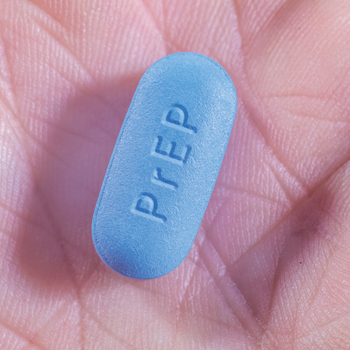New CBC test, implant for apnea approved
This column reviews details on recent recalls, warnings, and approvals.
Recalls and alerts
A voluntary market withdrawal of two lots of Octagam 10% (immune globulin intravenous [human]) liquid preparation due to an increased number of reported hypersensitivity events. There have been no reports of serious injury, but the manufacturer and public health authorities at the FDA have determined that suspending further administration of the products from these lots is the most prudent course of action.
A recall of two lots of compounded glutamine, arginine, and carnitine by United Pharmacy due to two adverse events. Two patients developed tissue erosion at the injection site after administration of the product, which had a pH of 10.9, an FDA analysis found. No glutamine was detected in the product sample. Compounded drugs are not evaluated by the FDA for safety and effectiveness, and there is no FDA-approved injectable glutamine, arginine, and carnitine product.

A warning that consumers should not use kratom (Mitragyna speciosa ), a plant that has no FDA-approved uses. People use kratom to treat pain, anxiety, and depression, and the agency is concerned that the product, which affects the opioid brain receptors, may expose users to the risks of addiction, abuse, and dependence. Patients also use kratom to treat opioid withdrawal symptoms, but there is no reliable evidence to support such use. As the FDA evaluates all available scientific information about kratom, it encourages more research to better understand the substance's safety profile, including its use in combination with other drugs.
Approvals
Marketing clearance and a waiver for a complete blood cell count test to be run in additional health care settings (e.g., physician's offices, clinics) and by a wide range of personnel (e.g., support staff). The expanded access to the test, called the XW-100 Automated Hematology Analyzer, will allow faster availability of results, according to the FDA. The test quantifies 12 hematology parameters and is indicated for patients ages 2 and older who require a whole blood cell count and white blood cell differential. The device was originally cleared in 2015 for use at the patient's point of care.
The Remedē System, an implantable device to treat patients with moderate to severe central sleep apnea. The device consists of a battery pack surgically placed under the skin of the upper chest and small, thin wires inserted in the chest near the phrenic nerve. During sleep, the system monitors respiratory signals and stimulates the nerve to move the diaphragm and restore normal breathing. The FDA reviewed data from 141 patients showing that after six months, apnea hypopnea index (a measure of the frequency and severity of apnea episodes) was reduced by 50% or more in 51% of patients with the system, compared to 11% in patients without it. The most common adverse events were concomitant device interaction, implant site infection, and swelling and local tissue damage or pocket erosion. The device is contraindicated in patients with an active infection and those who require MRI. It is not indicated for patients with obstructive sleep apnea.
Aripiprazole tablets with sensor (Abilify MyCite), the first drug in the U.S. with a digital ingestion tracking system. The product, which records ingestion of the medication, is approved for treatment of schizophrenia, acute treatment of manic and mixed episodes associated with bipolar I disorder, and adjunctive treatment of depression in adults. The pill's sensor sends a signal to a wearable patch, which then sends the information to a mobile application. Clinicians can access the data through a web-based portal with patients' permission. The product's label states that its ability to improve patients' adherence to their treatment regimens has not been shown and that it should not be used to track ingestion in real time or during an emergency. In clinical trials of the medication, the most common side effects were nausea, vomiting, constipation, headache, dizziness, akathisia, anxiety, insomnia, and restlessness. Skin irritation at the patch site may also occur. Prior to first use, clinicians should facilitate use of the drug, patch, and app to ensure patients are able and willing to use the system.
The FreeStyle Libre Flash Glucose Monitoring System, the first continuous glucose monitoring system that can be used by adults to make diabetes treatment decisions without blood sample calibration from a fingerstick. The system uses a small sensor wire inserted below the skin to continuously measure and monitor glucose levels. Patients can determine glucose levels by waving a dedicated, mobile reader above the sensor wire. After a 12-hour start-up period, the device can be worn for up to 10 days. Approval was based on a study that compared its readings to those obtained by an established laboratory method. Risks include hypoglycemia or hyperglycemia in cases where inaccurate information is provided by the device, as well as mild skin irritation around the insertion site. The device does not provide real-time alerts or alarms unless the user initiates an action. For example, it will not alert users to low blood glucose levels while they are asleep.
The Magnetom Terra, the first seven tesla (7T) MRI device cleared for clinical use in the U.S. Before the approval, the country's clinical MRI systems were available in field strengths of 3T and below. The FDA cleared the device after comparing it to a predicate device, obtaining sample clinical images, and reviewing manufacturer data. Radiologists who reviewed the data, which compared images of 35 healthy patients that were taken by the 7T device versus the 3T device, confirmed that the images taken by the 7T device were of diagnostic quality and were, in some cases, an improvement over the 3T images. The device is indicated for patients weighing more than 66 pounds and is limited to examinations of the head and extremities.
Acalabrutinib (Calquence) to treat adults with mantle cell lymphoma who have received at least one previous therapy. The kinase inhibitor works by blocking an enzyme needed for cancer growth. Accelerated approval of the orphan drug was based on a single-arm trial of 124 patients, in which 40% of patients had complete shrinkage and 41% had partial shrinkage of their tumors after treatment. Common side effects include headache, diarrhea, bruising, fatigue, myalgia, anemia, thrombocytopenia, and neutropenia. Serious side effects include hemorrhage, infections, and atrial fibrillation. Second primary malignancies have occurred in some patients taking the drug, which is also contraindicated in women who are breastfeeding.
Abemaciclib (Verzenio) to treat adults with hormone receptor (HR)-positive, human epidermal growth factor receptor 2 (HER2)-negative advanced or metastatic breast cancer. The drug is approved to be administered in combination with fulvestrant in patients whose cancer grew on endocrine therapy or on its own in patients previously treated with endocrine therapy and chemotherapy after cancer metastasized. The combination treatment was studied in a randomized trial of 669 patients, where the median progression-free survival on combination therapy was 16.4 months compared to 9.3 months among patients taking placebo with fulvestrant. A single-arm trial tested the drug as a stand-alone treatment and found that 19.7% of 132 patients experienced complete or partial shrinkage of their tumors for a median of 8.6 months. Common side effects include diarrhea, leukopenia, nausea, abdominal pain, infections, fatigue, anemia, decreased appetite, vomiting, and headache. Serious side effects include diarrhea, neutropenia, elevated liver blood tests, deep venous thrombosis, and pulmonary embolism.
Miscellaneous
An update to a March 2017 letter to clinicians about the Absorb GT1 Bioresorbable Vascular Scaffold (BVS). Three years of interim results from the ABSORB III trial continue to show an increased rate of major adverse cardiac events and BVS thrombosis in patients treated with the device compared to those treated with the approved metallic XIENCE drug-eluting stent. The manufacturer stopped global sales of the BVS in September 2017. FDA recommendations outlined in the original letter remain unchanged.
First-time generic approvals
Dextromethorphan hydrobromide and quinidine sulfate capsules (10 mg/20 mg) to treat pseudobulbar affect. (Brand name: Nuedexta)
Dapsone gel (5%) to topically treat acne vulgaris. (Brand name: Aczone)
Glatiramer acetate injection (40 mg/mL) to reduce the frequency of relapses in certain patients with relapsing-remitting multiple sclerosis. (Brand name: Copaxone)
Potassium chloride for oral solution USP (20 mEq) to treat potassium deficiency. (Brand name: Klor-Con Powder)
Carvedilol phosphate extended-release capsules (10 mg, 20 mg, 40 mg, and 80 mg) to treat hypertension. (Brand name: Coreg CR)
Methadone hydrochloride injection USP (200 mg/20 mL [10 mg/mL] multidose vial) to manage pain severe enough to require an opioid and for which alternative treatment options are inadequate, as well as to temporarily treat patients with opioid dependence who are unable to take oral medication.
Sodium acetate injection USP (400 mEq/100 mL [4 mEq/mL]) as a source of sodium to be added to large-volume IV fluids to prevent or correct hyponatremia in patients with restricted or no oral intake, and also as an additive for preparing specific IV fluid formulas when a patient's needs cannot be met by standard electrolyte or nutrient solutions.
Note: The FDA states that drugs are not always commercially available immediately after approval.




